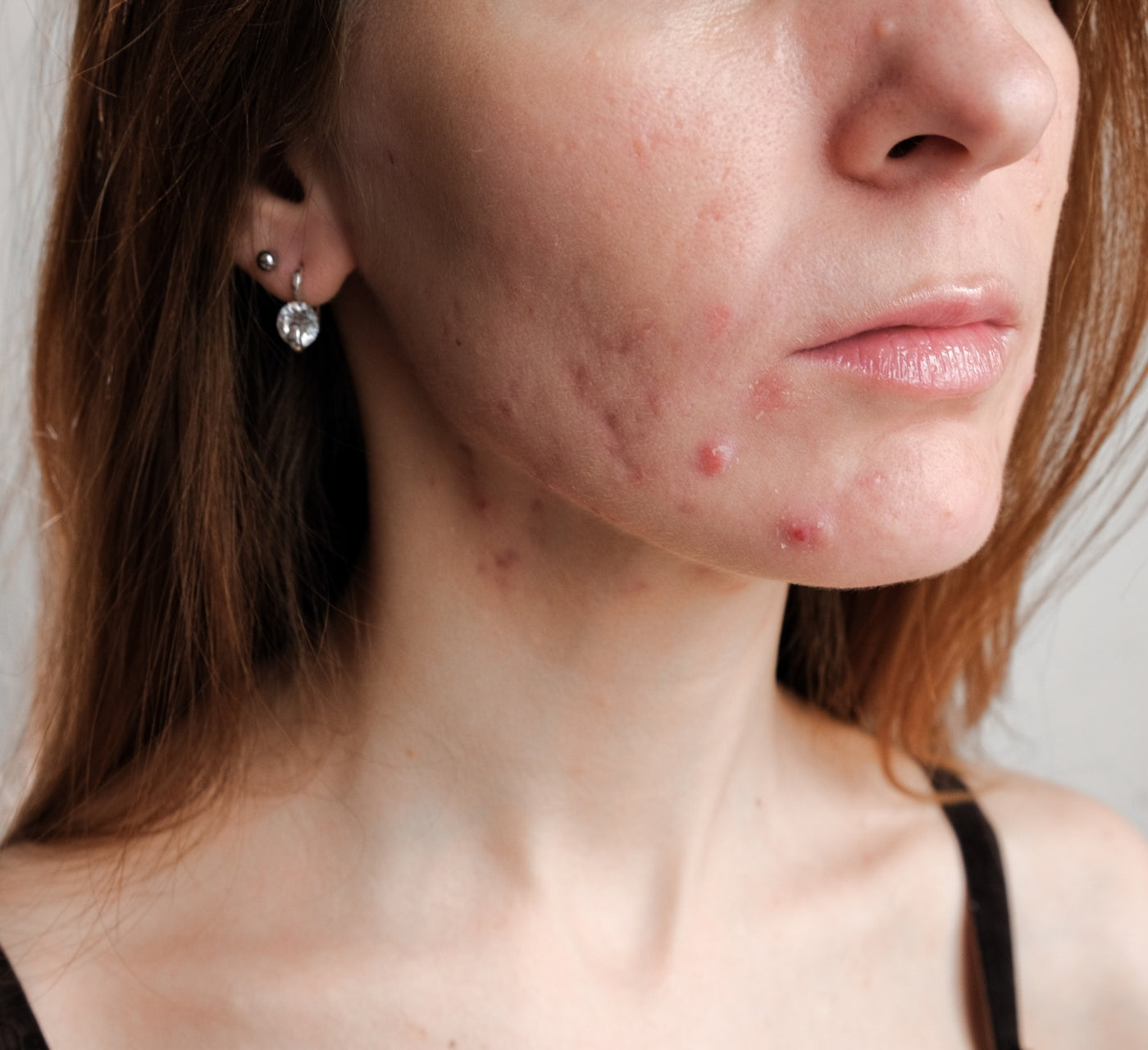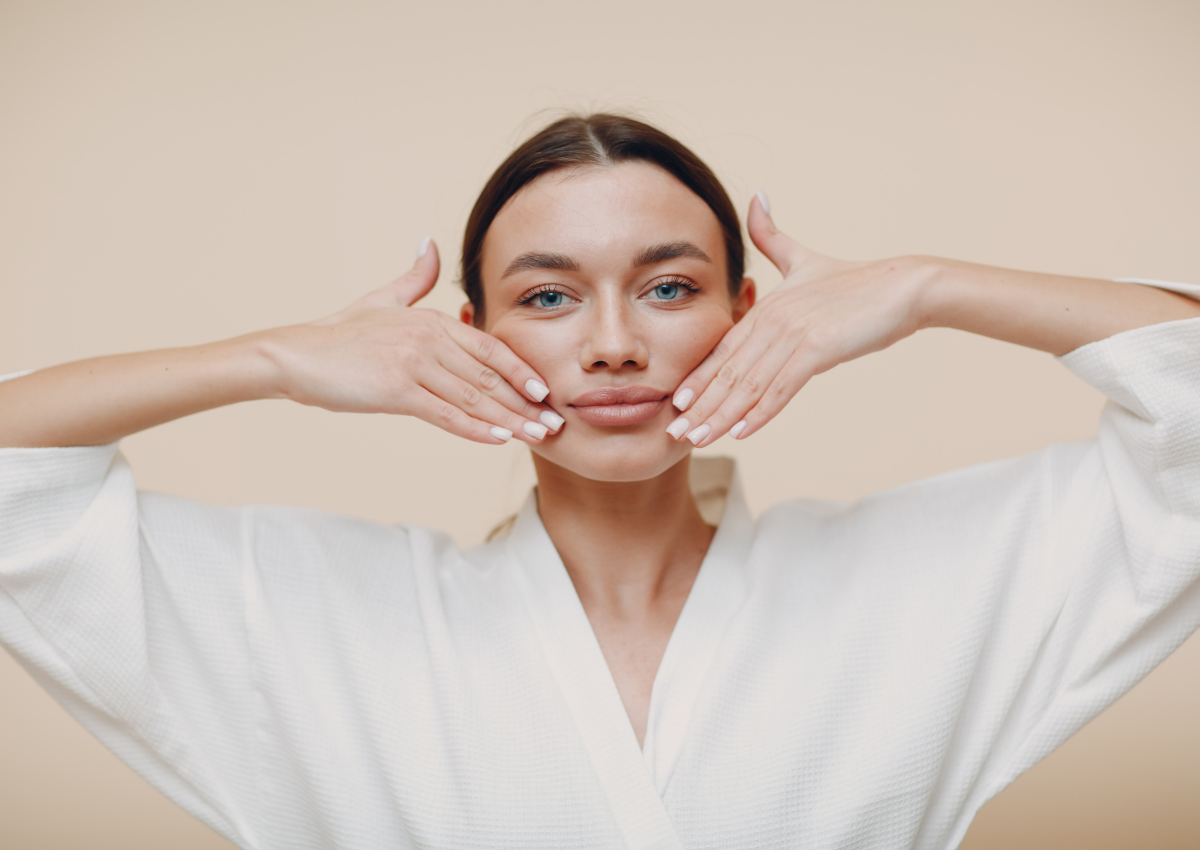
What is acne? Does it have a cure? How can I treat it?
Does acne have a cure? Is it easy to control or even reduce it with just cosmetics? What exactly is acne? If I have blackheads, very enlarged pores and specific hormonal pimples, do I have acne? Each question has a specific answer. Before going into detail, we resolve the most frequently asked questions that head this article.
- Acne does have a cure and in most cases you can cure it mainly with the treatments that a dermatologist - after diagnosis - prescribes.
- If you choose the right cosmetics (if you continue reading you will discover which ones you should look for) you will be able to keep it at bay and even reduce it. Even so, in many cases Your skin will need medical treatment .
- Oily skin and/or with a tendency to accumulate impurities is not synonymous with acneic skin. Acne is a skin disease . Impurities or skin with a tendency to become more "dirty" is a skin condition, but it is not synonymous with acneic skin.
1. What is acne?
Common acne (acne vulgaris) is an inflammatory disease of the pilosebaceous follicle . It is characterized by the appearance, simultaneous or not, of comedones, papules, pustules, nodules, cysts and/or scars. These are produced by an excess of fat accumulation within the follicle , which can induce the inflammatory process. Depending on the number and type of lesions, there are different levels of severity, which must be treated differently and always by a dermatologist.

1.1 Is it true that there is a bacteria involved in the appearance of acne?
Yes it's correct. Propionibacterium Acnes mainly. It is a bacteria that can be present on our skin normally and that feeds on the oil produced by the sebaceous glands. P. Acnes colonizes our skin and proliferates in the presence of sebum and the absence of oxygen*. Infection with this bacteria can worsen the course of acne.
*This can influence the appearance of maskne (acne caused by the use of surgical masks).
"Acne is an inflammatory disease of the pilosebaceous follicle. It is characterized by the appearance, simultaneous or not, of comedones, papules, pustules, nodules, cysts and/or scars"
2. What causes acne?
Acne is a multifactorial disease, meaning it has several possible causes . Mainly, and in the majority of cases of common acne, the main cause is hormonal . Acne is related to the presence of androgens, especially 5 alpha dihydrotestosterone (DHT) . It also has a partially hereditary component and some people may have a certain predisposition to developing acne. Other factors are also involved, such as diet or stress.
"Acne is related to the presence of androgens, especially 5 alpha dihydrotestosterone (DHT)."
3. What is hormonal acne?
Androgens are a group of male sex hormones that, in addition to regulating certain characteristics present in that sex, act at other levels such as the skin. A too high level of androgens or an alteration in the response of the sebaceous gland to them, results in an increase in sebum production and a thickening of the keratin layer of the follicle , favoring the retention of fat inside. Let's say that each pilosebaceous follicle is a small “volcano” that normally secretes sebum to its exterior . In people with acne, it produces too much oil and is also clogged at the top, accumulating this excess inside, and can break out at any time . This effect occurs more in women than in men, since their skin is more sensitive to androgens.
There are other hormones that are also involved in sebum production, such as GH, glucocorticoids, insulin or thyroid hormones. All of them play an important role in sebum production in the skin. On the other hand, estrogens (female sex hormones) suppress the function of the sebaceous glands and let's say they are “protective” against acne.
4. Are natural cosmetics effective in controlling acne?
Yes, if you choose correctly what your skin needs and check that the choice is compatible with the medical treatments that the dermatologist has indicated (if applicable).
4.1 Recommendations for acneic skin:
CLEAN : It is one of the most important steps when it comes to controlling acne. We recommend that you always cleanse your skin - both in the morning and at night . To control/reduce acne, it is essential to eliminate traces of dirt and grease that clog pores and cause acne .
Use a complete cleanser that performs a deep double cleanse and does not irritate or dehydrate the skin . If it also contains an ingredient that helps you gently exfoliate the skin (ideally an enzymatic exfoliant) then you will notice even more improvement .
Our selection to clean acneic skin:
- A single product for morning and night: complete cleanser for a double deep cleansing and gentle exfoliation.
- A water-based cleanser to use every morning and in the second phase of a double cleanse (if you choose to use two different products):
- Facial mousse with prebiotics.
- Solid cleaner with colloidal silver.
- Brightening and purifying gel facial cleanser.
- Gel facial cleanser with black mint.
- Purifying gel cleanser.
- ACNE foaming cleanser.
- An oil-based cleanser to use in the first phase of a double cleanse:
TONE : Choose a very hydrating toner that helps your skin reestablish its balance and pH. If it contains some regulating or purifying ingredient, you will get more out of it, even controlling/reducing acne .
HYDRATE : avoid products that contain comedogenic fats ( coconut oil, shea butter, avocado oil, etc...) . Occlusive ingredients will worsen acne by producing comedones and inflammation and this will not benefit your skin.
There is no perfect routine for everyone. Your skin may feel great about using only one serum, or perhaps a double serum (hydrating/regulating serum + serum with a little anti-aging treatment), or serum and cream, or just cream...
Whatever your preference, focus on lotions/serums/creams that are fluid, very hydrating, that do not contain occlusive ingredients and that contain some key ingredient to control/reduce acne ( for example cucumber , copaiba and zinc , black cumin , grapefruit, rhassoul clay and if it also contains hyaluronic acid you will be able to keep the skin more and better hydrated without making it greasy).
Other treatments that we have tried and also work very well:
- Regulating serum with copaiba and zinc, ideal for adult acne.
- Intensive serum for localized acne areas .
- Oil-concentrated serum for oily and acne-prone skin .
- Carbon Star regulating facial oil, to be used only at night .
4.2 Can I exfoliate my skin if I have acne?
Yes, but not with any facial scrub.
It depends on the exfoliant you choose, but in the event of a severe acne outbreak our advice is not to use a physical exfoliant . We advise you to try a cleanser that gently exfoliates the skin . There are cleansers that, in addition to cleaning and removing makeup, facilitate the exfoliation of the superficial layers of the skin and prevent those "microcysts" that later tend to evolve into comedones/pimples.
One of our favorite exfoliating ingredients is papaya extract. to papaya extract, specifically papain .

Papain is an exfoliating enzyme (obtained from this fruit) that dissolves dead skin cells . It also helps cell renewal. Thanks to its high content of this enzyme, papaya extract achieves a notable exfoliating but gentle effect on your skin. It will be your best ally against acne and will also improve the appearance of scars and blemishes . With this ingredient you will get a gentle enzymatic exfoliation with each use and it will help prevent skin inflammation.
"Papaya extract achieves a notable exfoliating but gentle effect on your skin. It will be your best ally against acne and will also improve the appearance of scars and blemishes"




Leave a comment
This site is protected by hCaptcha and the hCaptcha Privacy Policy and Terms of Service apply.